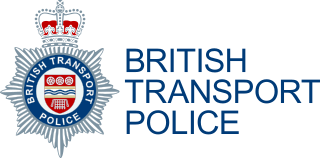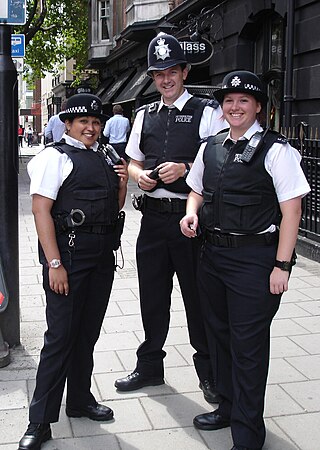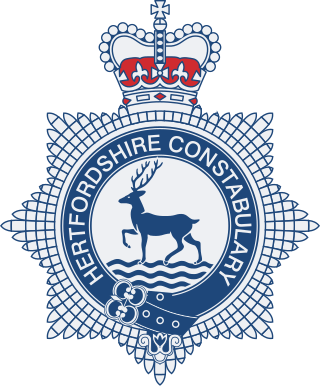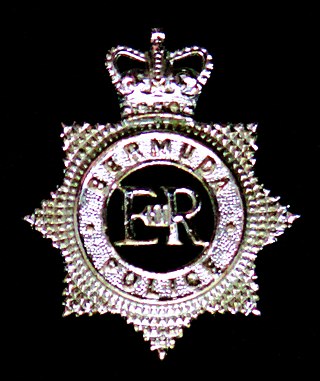
Law enforcement is the activity of some members of the government or other social institutions who act in an organized manner to enforce the law by investigating, deterring, rehabilitating, or punishing people who violate the rules and norms governing that society. The term encompasses police, courts and corrections. These three components of the criminal justice system may operate independently of each other or collectively through the use of record sharing and cooperation. Throughout the world, law enforcement are also associated with protecting the public, life, property, and keeping the peace in society.

The police are a constituted body of persons empowered by a state with the aim of enforcing the law and protecting the public order as well as the public itself. This commonly includes ensuring the safety, health, and possessions of citizens, and to prevent crime and civil disorder. Their lawful powers encompass arrest and the use of force legitimized by the state via the monopoly on violence. The term is most commonly associated with the police forces of a sovereign state that are authorized to exercise the police power of that state within a defined legal or territorial area of responsibility. Police forces are often defined as being separate from the military and other organizations involved in the defense of the state against foreign aggressors; however, gendarmerie are military units charged with civil policing. Police forces are usually public sector services, funded through taxes.
A constable is a person holding a particular office, most commonly in law enforcement. The office of constable can vary significantly in different jurisdictions. Constable is commonly the rank of an officer within a police service. Other people may be granted powers of a constable without holding this title.

The Metropolitan Police Service (MPS), formerly and still commonly known as the Metropolitan Police, or simply the Met, is the territorial police force responsible for law enforcement and crime prevention within Greater London. In addition, it is responsible for specialised tasks throughout the United Kingdom, such as dealing with counter-terrorism throughout the UK, and the protection of certain individuals, including the monarch, royal family, governmental officials, and other designated figures. It is also referred to as an eponym as Scotland Yard or the Yard, after the location of its original headquarters in Great Scotland Yard, Whitehall, in the 19th century. The Met is presently headquartered at New Scotland Yard, on the Victoria Embankment.

British Transport Police is a national special police force that polices the railway network of England, Wales and Scotland. The force polices more than 10,000 miles of track and more than 3,000 stations and depots.

Law enforcement in the United Kingdom is organised separately in each of the legal systems of the United Kingdom: England and Wales, Scotland, and Northern Ireland. Most law enforcement duties are carried out by those who hold the office of police constable of a territorial police force.
Railroad police or railway police are people responsible for the protection of railroad properties, facilities, revenue, equipment, and personnel, as well as carried passengers and cargo. Railroad police may also patrol public rail transit systems.

Transit police are specialized police agencies employed either by a common carrier, such as a transit district, railway, railroad, bus line, or another mass transit provider or municipality, county, district, or state.

A police dog, also known as a K-9, is a dog that is trained to assist police and other law enforcement officers. Their duties may include searching for drugs and explosives, locating missing people, finding crime scene evidence, protecting officers and other people, and attacking suspects who flee from officers. The breeds most commonly used by law enforcement are the German Shepherd, Belgian Malinois, Bloodhound, Dutch Shepherd, and Labrador Retriever. In recent years, the Belgian Malinois has become the leading choice for police and military work due to their intense drive, focus, agility, and smaller size, though German Shepherds remain the breed most associated with law enforcement.

Law enforcement in India is imperative to keep justice and order in the nation. Indian law is enforced by a number of agencies. India has a multi-layered law enforcement structure with both federal and state/union territory level agencies, including specialized ones with specific jurisdictions. Unlike many federal nations, the constitution of India delegates the maintenance of law and order primarily to the states and territories.
A police community support officer, or as written in legislation Community Support Officer, is a uniformed member of police staff in England and Wales, a role created by Section 38(2) of the Police Reform Act 2002, which was given Royal Assent by Queen Elizabeth II on 24 July 2002. They are not warranted, but hold a variety of police powers and the power of a constable in various instances by the forty-three territorial police forces in England and Wales and the British Transport Police.
Inspector, also police inspector or inspector of police, is a police rank. The rank or position varies in seniority depending on the organization that uses it.

The Toronto Police Service (TPS) is a municipal police force in Toronto, Ontario, Canada, and the primary agency responsible for providing law enforcement and policing services in Toronto. Established in 1834, it was the first local police service created in North America and is one of the oldest police services in the English-speaking world.

Hertfordshire Constabulary is the territorial police force responsible for policing the county of Hertfordshire in England. Its headquarters is in Welwyn Garden City. The current chief constable is Andy Prophet. As of March 2019, the force consists of over 1,900 police officers, 235 PCSOs, and over 1500 police staff, as well as being supported by more than 410 special constables.

Wandsworth Parks and Events Police is a Wandsworth Borough Council service responsible for the routine patrolling of the parks, commons, and open spaces within the London Borough of Wandsworth, which has more green spaces than any other inner London borough. It also enforces byelaws, dog control orders, and other park regulations, and provides policing for special events. Its lineage may be traced to a 1984 foundation, although the present body dates from 2012, and was rebranded in 2015 with its current name and responsibilities.

The Bermuda Police Service is the law enforcement agency of the British Overseas Territory and former Imperial fortress of Bermuda. It is responsible for policing the entire archipelago, including incorporated municipalities, and the surrounding waters. It is part of, and entirely funded by, the Government of Bermuda. Like the Royal Bermuda Regiment, it is under the nominal control of the territory's Governor and Commander in Chief, although, for day-to-day purposes, control is delegated to a minister of the local government. It was created in 1879, as Bermuda's first professional police service. In organisation, operation, and dress, it was created and has developed in line with the patterns established by British Isles police services, such as the City of Glasgow Police, and the Metropolitan Police Service.

Law enforcement in Canada is the responsibility of police services, special constabularies, and civil law enforcement agencies, which are operated by every level of government, some private and Crown corporations, and First Nations. In contrast to the United States or Mexico, and with the exception of the Unité permanente anticorruption in Quebec and the Organized Crime Agency of British Columbia, there are no organizations dedicated exclusively to the investigation of criminal activity in Canada. Criminal investigations are instead conducted by police services, which maintain specialized criminal investigation units in addition to their mandate for emergency response and general community safety.
A parish constable, also known as a petty constable, was a law enforcement officer, usually unpaid and part-time, serving a parish. The position evolved from the ancient chief pledge of a tithing and takes its name from the office of constable with which it was originally unconnected.

The history of law enforcement in the United Kingdom charts the development of law enforcement in the United Kingdom and its predecessor states. It spans the period from the Middle Ages, through to the development of the first modern police force in the world in the nineteenth century, and the subsequent modernisation of policing in the twentieth and twenty-first centuries.













